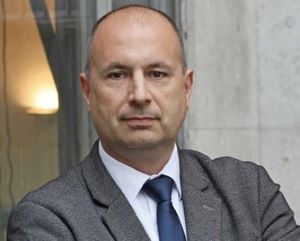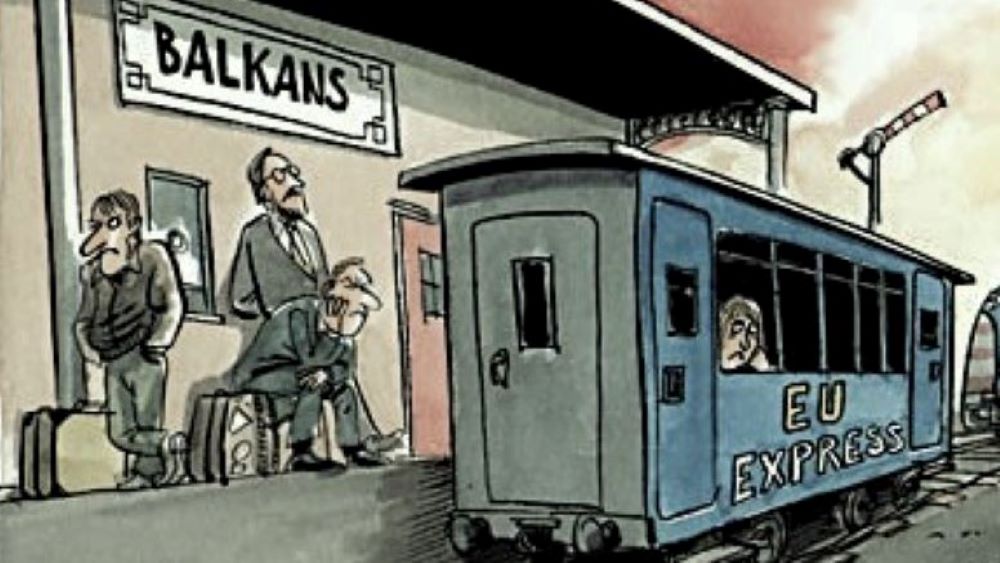Enlargement is only possible with a synergy of pulling from the EU and pushing from the candidate countries.

Dr. Vladimir Medjak
The very fact that we are marking 20 years since the Thessaloniki Summit where the prospect of EU membership was offered to the Western Balkan countries, and only one has since become a member, shows how bad things are in the enlargement process and demonstrates the lack of vision.
As in any process, it takes two to tango, otherwise its success is impossible, and in this case the desire to tango has been fluctuating among the participants. When it was present in the countries of the Western Balkans, it was lacking in the EU – a decisive actor in the process.
States cannot enter the EU against the will of the EU, however, the candidate states themselves must be ready to push for membership and carry out the necessary reforms. Enlargement is only possible with a synergy of pulling from the EU and pushing from the candidate countries. The pulling factor of the EU has long been missing in the enlargement process. Its deficit was evident at the beginning of 2010, after the entry of Romania and Bulgaria, when the EU quietly withdrew from the Balkans, accepting the policy of stabilitocracy: “as long as you do not cause problems and there is no violence, we will not ask you about democracy”. The threat to democracy in some Balkan countries, which accompanied this policy, did not overly worry the EU. In these conditions, EU membership ceases to be the main topic on the political agenda.
Only Croatia had enough strength to push for membership and enough sensibility within the EU itself for this push to not go unanswered. Other countries did not have a positive response, so over time the push factor stopped.
After 2014 in Serbia this lack of EU will was used to initiate reversible processes and to return to the previous state, i.e. before entering the EU accession process, accompanied by intense anti-EU and anti-Western propaganda, although the Government officially says that the EU is still a priority. The goal of the propaganda is to convince the citizens of Serbia that joining the EU is not good for Serbia at all, or at the very least, even if it is good, it is not feasible in the foreseeable future. According to numerous research, after 10 years of propaganda, a significant part of Serbian citizens now believes it.
20 years after Thessaloniki, the prospects for Serbia’s membership in the EU are neither promising nor encouraging. The Government of Serbia persistently refuses to join the EU in the most important strategic issue, the relationship with Russia, promoting Russian views in media, turning the citizens of Serbia towards Russia and against the EU. Serbia is also taking major steps in the opposite direction in relation to the reforms that EU membership requires, primarily when it comes to democracy, the rule of law, functional democratic institutions, the fight against corruption and organized crime. Under these circumstances, Serbia’s entry into the EU is possible only if geopolitical considerations prevail in the EU and the EU, for geopolitical reasons, accepts Serbia (and the entire Balkans as a group). In that case, it would be a supervised membership, where the supervision would last for decades, in which the necessary reforms would finally be implemented. Only after the end of supervision, Serbia would receive the status of a full member. All of this could have been avoided by a clear adherence to the reform agenda and a clear political determination that Serbia should be part of the EU and the political West, and not a country with its wallet in Brussels and its heart in the East.
Dr. Vladimir Medjak, lawyer and expert in European law and European integration. Member of the Main Board of the European Movement in Serbia



Leave A Comment